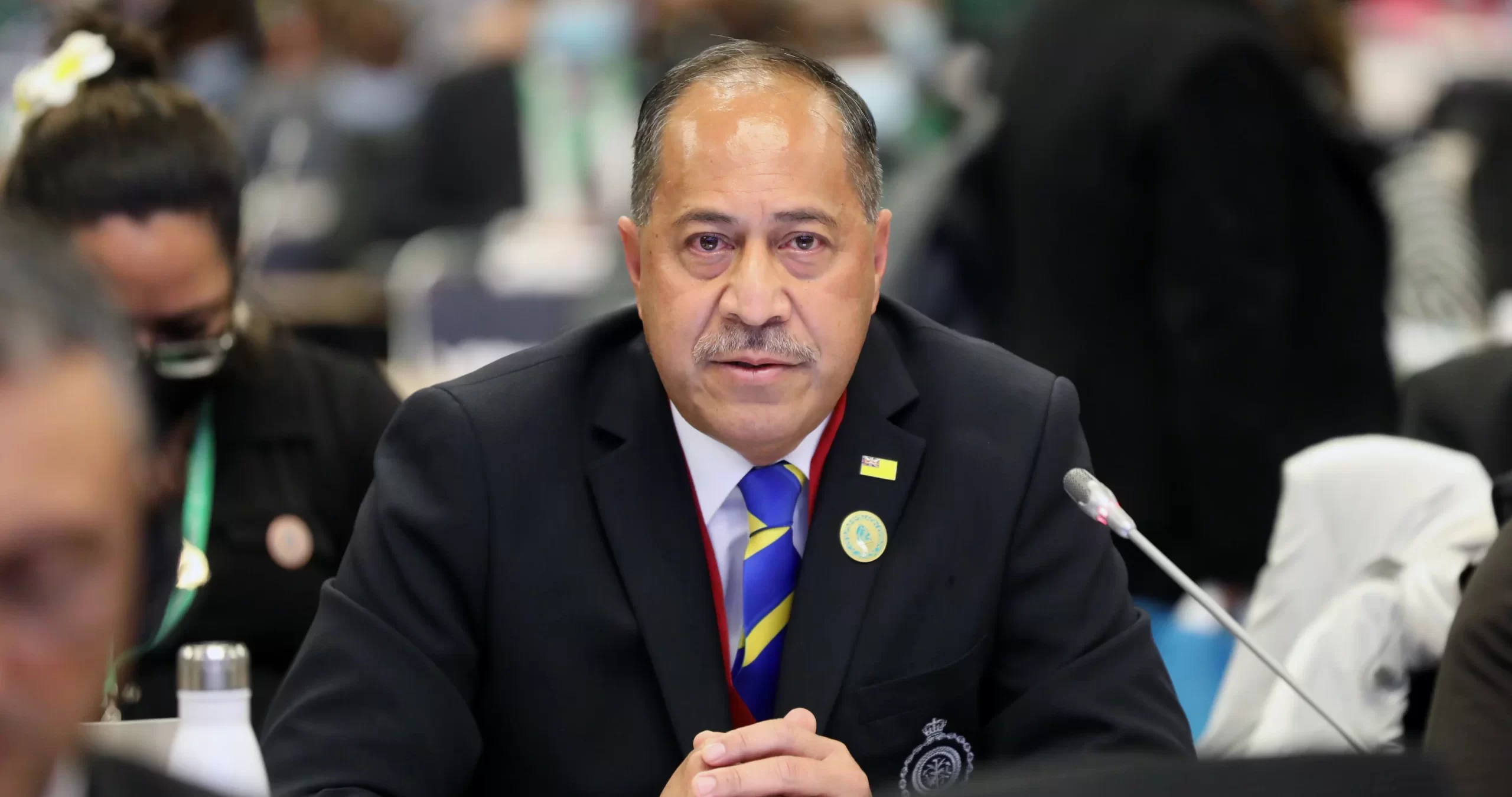Planeloads of passengers are touching down in Niue, days out from the country’s 50th anniversary of their national constitution.
For a country whose population usually sits around 1600, the coral atoll is now heaving with new and returning visitors for the occasion.
Gaylene Wilson is a youth coordinator for Ofaga ha Keriso in Wellington and arrived with a group of fifty church members, many of whom were first time visitors.
“To be able to touch down, breathe the air, just soak in everything around us, it’s just been really amazing.
“I hope we’ve instilled the desire for them to come back to Niue more often, if not for good.”
Although Niue is a realm country of New Zealand, it became a self-governing state on 19 October 1974.
Prime Minister Dalton Tagelagi said they had come a long way in the past half-century and encouraged island nations to exemplify a Pacific way forward for the future.
“The world at the moment is unstable with conflicts and hatred and all other things … the Pacific people should lead the way with their culture, but more so in living in peace and harmony.
“Protecting the oceans is important as we know, conservation and preserving for future generations is always a number one thing, Niue is all very much about the integrity of the environment, whether it’s the ocean or the land sustainability that comes with that.”
While support from Aotearoa remains strong, China and the United States have also in recent years been cosying up to Niue.
Last year the island nation entered into a special diplomatic relationship with the U.S while also receiving aid from China on certain infrastructure projects such as roads.
Speaking to PMN’s Matt Manukuo, the Prime Minister remained diplomatic about the support they receive.
“Every partner that we have are great friends of ours because they are the ones that have helped us with our aspirations and so forth.”
But international law expert Al Gillespie said Niue needs to proceed with more “diplomacy and delicate footwork” than in the past.
“Many members of the Pacific suddenly have come to the attention of both China and the United States, and they’ve got more resources being poured towards them than we’ve seen in decades, and you cannot begrudge them for trying to access some of this resource for the good of their people.
“But when it starts moving over into security or policing, it becomes a much more difficult game because it fundamentally alters the relationship between the traditional powers in that region and the new powers coming in.”
The question remains as to whether Niue will eventually become fully independent.
“I don’t think in my lifetime,” said Tagelagi. “But I’m optimistic like everyone else that it will lead to that.”
Tagelagi said it was important to not fully rely on partners and hoped to be proactive in developing innovative ways for Niue to become economically sustainable and build on the legacy of their forefathers.
“I think it’s important not to leave a burden on the future of the generations to come but establish a platform for it where you can leave something which is tangible to the vision that we’re all looking at Niue to be prosperous.”
But Gillespie said it’s important to think this through.
“You need to be careful what you wish for because full independence might mean you have complete autonomy over your foreign policy, but it could also mean in exchange you lose citizenship rights within countries which have been looking after you for 50 years.”
Gillespie said the 50-year milestone is a good time to assess the state of global relationships and be aware of changes that could be on the horizon.
“This is a wake-up call for New Zealand not to take it for granted that these relationships are important in economic, cultural and social terms.
“With the United States, what you’re seeing is a pivot back towards having a greater influence in the region, and this is a good thing because the Americans have for a long time taken it for granted that the Pacific was effectively a lake that they didn’t have to be worried about. “The concern we have to have now though, is with the election that’s coming up in November, is whether Trump would continue, if he was successful, the same policy that Biden currently has, said Gillespie.
